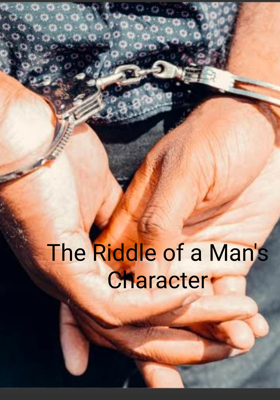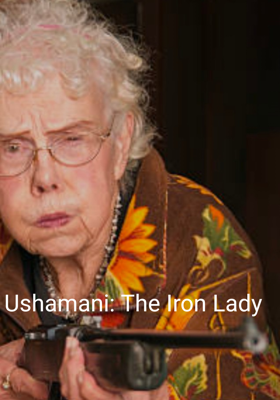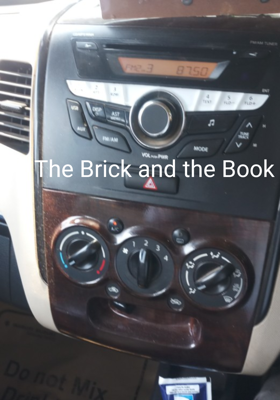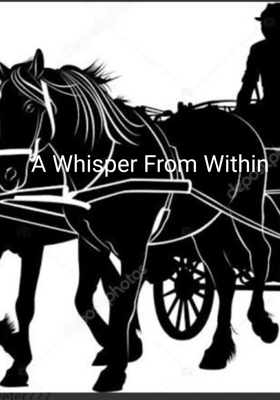Self-Dignity
Self-Dignity


When I first came to settle down at Santoshi Vihar, I frequented a shop selling betel leaf. The shop owner Deepak's mother, when free, talked to people who often referred to a man named Gandhi. Her shop would stay open till 11 in the morning. My classes would get over around 9.On my way back home, I stopped there to collect my quota of betel leaf for the first half of the day. I would manage early in the morning with the surplus betel leaf left from the previous night. There I read my favourite Odia daily 'The Samaj' with my ears open to the chit-chat circulating around.
Initially, I wondered why people called him Gandhi. He was neither a Mahatma (a great soul), nor did he follow a single Gandhian principle. Gandhi was a washerman by caste. His wife lived separately in a mud hut by the canal but gave food to Gandhi twice a day. She pressed people's clothes almost day and night and earned quite a bit. Her husband Gandhi lived also close by, but in an abandoned wood cabin. His indolence and aversion to work had earned him the status of a good-for-nothing beggar. He could yarn magnificent lies, but his victims included strangers only, from whom he extracted one, two, and five rupee coins. The people living nearby knew how tricky he could be, and he knew it was impossible to trap any of them.
Gandhi was well-known for his drunkenness. He begged money only to be drunk. He would be always seen inebriated. In spite of that, he was a perfect and matchless actor. He excelled in shedding a jugful of seemingly genuine and natural tears anytime occasion arose. When I first met him, he had earned a hundred rupee note from me. He had narrated the story of his father's misfortunes, how his father rescued a child from being run over by a speeding school bus and lost his left hand. The child didn't sustain any injuries, but his affluent heartless father refused to pay the cost of his father's treatment for which the old man had to drag on an unhappy existence. Now the same father of Gandhi's was confined to bed in a hospital. A large amount of money was required for his tumour operation. Gandhi's brothers were rich but not as generous with their money as worthy sons should be to a magnanimous father like his. Only his youngest brother who was a petty trader was using his meagre savings to alleviate his father's suffering. Gandhi desperately wanted to be by the side of his dying father but didn't have even a hundred rupees to go to Brahmapur. He was crying bitterly. I wanted to give him five thousand rupees straightaway, but something inside told me not to. I gave him a hundred rupee note. He clutched my feet and was wailing, "Sir, you are God..! You are God..!" People began to gather and it was embarrassing.I left the spot. At that time, I didn't know that he couldn't do without a drink; that he excelled in concocting lies.
One summer afternoon, when I was at the betel leaf shop, Deepak's mother narrated to me the complete life history of Gandhi. I was speechless to hear that Gandhi's father had died in his early childhood! I developed a strong dislike for the man, and avoided eye contact with him whenever he came in sight. After two days, I saw him seated on his favourite stone slab in front of his home-the wood cabin by the road under a densely leafy tamarind tree. He was drunk and was raving. Some children were making faces at him; some were throwing small stones at him. A bull was licking his back. Two boys were shouting at him. It seemed Gandhi was as worthless as a dustbin; those messing with him seemed to have every right to do so. His dirty body and soiled clothes gave out a rotten smell. Gandhi ate only once a day in the evening. His estranged wife Labanya still loved her husband secretly. This was evident because despite her hectic routine, she sent tea to him twice or thrice a day and dinner in the evening. She also particularly cooked sea fish which he relished. Even after their estrangement, she would regularly send him breakfast and lunch. When she was repeatedly told that he skipped them and only took the dinner, she sent him dinner only. She didn't have the courage to talk to him as he disliked her strongly. He had cruelly beaten her several times. He had a son aged about ten, but he didn't talk to the boy who brought him tea and dinner regularly.
Gandhi became drunk usually in the day and appeared to be normal by sunset. At this time, he never talked; nor did anyone pay any attention to him. He had no friends, no sympathizers. It was his estranged wife who was the only person to have a soft corner for him. This is how Gandhi lived and his presence didn't matter to anyone at all.
One morning it was raining and I was at home. My daughter went downstairs and returned with the copies of the Odia newspaper 'The Samaj' and 'The Times of India.' I was struck with puzzlement to see the Odisha Chief Minister Naveen Patnaik posing with Gandhi! Even the CM's hand was placed around Gandhi's shoulder. I went through the detailed report below the photo.
Venkatesh Aggarwal, one of the city's richest business tycoons, a jeweler, was driving his Mercedes Benz home by the canal road at around 11:30 pm in the night. He had to reach Forest Park.
Gandhi was fast asleep in his wood cabin. All of a sudden he got up; he had heard a loud bang outside. All the street dogs had started barking furiously. He came out and saw that a big car had crashed into a roadside tree. Inside the car was trapped an elderly gentleman gasping terribly for breath. The car door had opened a chink as the man inside was struggling to come out. Gandhi opened the door but the huge man in the car had lost his senses. He was sweating profusely.
Gandhi sighted a plump leather bag on his side seat. He instantly started making arrangements for taking the man to the nearest hospital.
However, before doing so, he had unzipped the bag and had seen cash in it. Fearing theft, he had kept the leather bag in his cabin and had locked it.
In the hospital, when Aggarwal got back his senses, he was told that he had had his first heart attack. Instead of being scared, he raved about his cash in the bag. Gandhi told him not to bother since it was in safe hands. A large number of family members and relatives had gathered there. Gandhi had returned the bag full of cash to Aggarwal. When it was counted, it matched the sum of sixty-three thousand rupees that Aggarwal had claimed. Journalists and photographers had thronged the hospital. Everybody was praising Gandhi copiously. He was now being adored like the protagonist or hero of a Hindi movie. He was only smiling stupidly baring his tobacco-stained teeth. He had told the journalists that he was not a thief and didn't covet other people's wealth. The import of his words was such that the Chief Minister came to know about it and sent for him. The press had given him an extensive blaze of publicity. Gandhi's smiling photo appeared in all Odia dailies.
I couldn't believe that Gandhi who importunately begged money to buy locally made booze and intoxicate himself had done such an extraordinarily honest job. I recalled how abjectly he would drop at your feet for a ten-rupee note. I recalled some of the interestingly false stories he had woven to fulfill his objective. I told my wife about it and she said she had heard the news about him on TV. My daughter commented teasingly, "Pa is always lost in his own world. Never knows anything happening around him... Even never knows what happens to us..!" She giggled. As usual, my wife harped on my weird absorption in myself for a while; she had always found it to be exasperating.
Instead of going through the report in the English daily, I rushed out into the street to verify what had actually happened. I visited the betel shop and enquired about the matter. The betel leaf seller's son Deepak said, "Sir, we can also hardly believe it. Gandhi who was dying for money every moment returned so much money to that Babu?"
I came to know that the businessman had given him only a meagre reward of five thousand rupees. People were cursing the rich man.I wanted to talk to Gandhi personally.
Gandhi was sitting on the stone slab and a motley crowd had thronged the place. I was amazed to observe Gandhi's unprecedented oomph and aplomb. Everybody at Santoshi Vihar was talking about honesty in the general sense.
I heard him roar: "Did you think I was a depraved thief..? I do beg. I admit that..! But can anyone say I ever stole a single thing that belonged to another person?"
Some boys in the crowd watching him said offendingly: "Wooooo! Gandhi is a Mahatma..!
Then there was loud insulting laughter.." Gandhi charged at them furiously and they fled.
After a few days, the hullabaloo died down.
Gandhi's wood cabin always appeared unlocked and empty. Now it was a shelter for the stray dogs. Labanya, Gandhi's estranged wife too went out of notice following a few months. Nobody bothered to know about them.
Now my daughter was doing her master's in English. My wife was the principal of an English medium school. I had seven of my literary works in English published. We had bought our dream house. I had just recently purchased my red Hyundai i20.On a sweltering summer day when the earth seemed to be ablaze, I was hurriedly driving to Utkal university at Vani Vihar, my daughter sitting alongside me. She was getting late for a class. As ever, she was impatient which disgusted me more than anything else when I was with her.
At Vani Vihar square, when my car was moving very slowly, another Ford Figo car bumped into mine from the back. I stopped the car and got out of it furiously. "What the hell are you doing, man?"
A young man was at the steering. He said, "Sorry Uncle..?" "Have you gone mad? You are sighted or blind?" my daughter screamed at him. An elderly man with a French beard and a bald pate came out opening the car door on the left and said politely, "Extremely sorry, Sir..! We'll pay whatever the repair charges... Can't we have a little patience with one another...? What on earth is Bhubaneswar coming to?" I was contemplating the woman in the car decked with gold jewelry with total absorption. The grown man was busy appeasing my daughter.
Stooping a little and peeping in, I asked the woman in the car, "Madam, could you tell me your good name?" My daughter was hissing at me."Papa, what the hell are you doing? The class's gone...! The car's damaged..!" I ignored her resolutely, and listened to the woman. But she sounded hurt and upset."What is there in my name?"She kept mum for a while and then with a daft expression on her face said,"I'm Labanya Sethi..."
"You lived at Santoshi Vihar at one time..?"
She rudely ignored my question.
I wondered for a while. A big broad smile over the elderly man's face. He said, "Here's my card with complete address, Sir. Take down my vehicle number... and.."
My daughter was indignant."Papa, want me to miss the next class too...!"
I took the man's card with a bitter taste in the mouth, with a big dent on the back of my car. The man wanted to take my bank account number. My daughter gave it to him promptly. He instantly paid rupees five thousand into my account.
I told the traffic inspector to give the car key back to the elderly man.
I dropped my daughter at the university grounds and came back. On reaching home, I called the man. We talked a good deal. I came to know that he was the proprietor of GANDHI BOOK HOUSE. I also knew he was named Gandhi as he was born on 2nd October. He was an undergraduate. He was ditched by a girl and had almost lost his wits after that. He then married his cousin Labanya but couldn't forget his old love. The couple constantly quarreled and lived apart for years.
After returning the sum of rupees sixty-three lakhs to the celebrated jeweler, he had experienced something new in him. He began to feel that he was somebody, and had striven hard to retain that unique feeling. First, he ran a fast-food stall. He saved quite enough in three years to set up a dairy farm. Fortune had favoured him. Now he had a dairy farm, a thriving bookshop and a restaurant named GANDHI CAFETERIA. Labanya's father had given her a big plot some thirty years before in the Nandankanan area on which was now running GANDHI DAIRY. The young man driving the car was their son. He was learning to drive.
I understood that it was a little bit of his sense of self-dignity stirred by his latent nobility or honesty that had catapulted him into his current position in society.
Whenever I think of the likes of Gandhi, I feel only if a sense of self-identity is infused into them, they can be able to pull themselves out of the bottomless ocean of ignominy and utter misery and stride the earth like true heroes.






























































